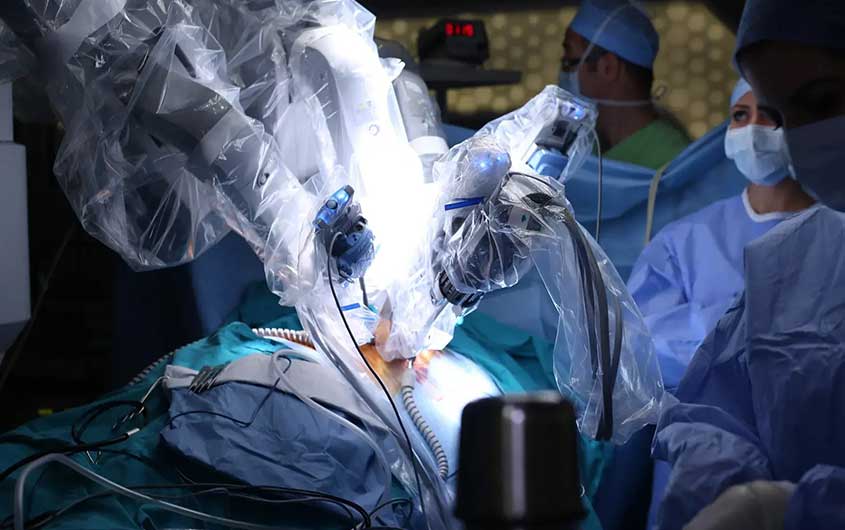Dr. Prabhu Nesargikar
Dept of Surgical Oncology HCG Cancer Center, Bangalore
+91 9740742752 || info-admissions@hcgcare.org

Gastrointestinal (GI) cancers account for a significant portion of cancer cases worldwide, requiring a highly skilled and precise surgical approach. With rapid advancements in minimally invasive and robotic techniques, GI surgical oncology has entered a new era—offering better outcomes, faster recovery, and improved quality of life for patients.
The Fellowship in GI Surgical Oncology & Robotic Surgery at HCG is designed to train surgeons in advanced, evidence-based management of gastrointestinal malignancies. The program combines high-volume clinical exposure, hands-on robotic training, and mentorship under leading GI surgical oncologists. Fellows are trained in complex resections, organ-preserving surgeries, and reconstructive procedures using state-of-the-art robotic and laparoscopic systems.
HCG’s multidisciplinary ecosystem ensures that fellows learn to plan and perform cancer surgeries in close collaboration with gastroenterologists, pathologists, radiologists, and medical oncologists — developing the skills needed to provide holistic, patient-focused care.
By the end of the fellowship, participants will be able to:
MS / DNB in General Surgery or Surgical Oncology (Experience in GI surgery or laparoscopic procedures preferred)

Dept of Surgical Oncology HCG Cancer Center, Bangalore
© 2025 designed by GHA